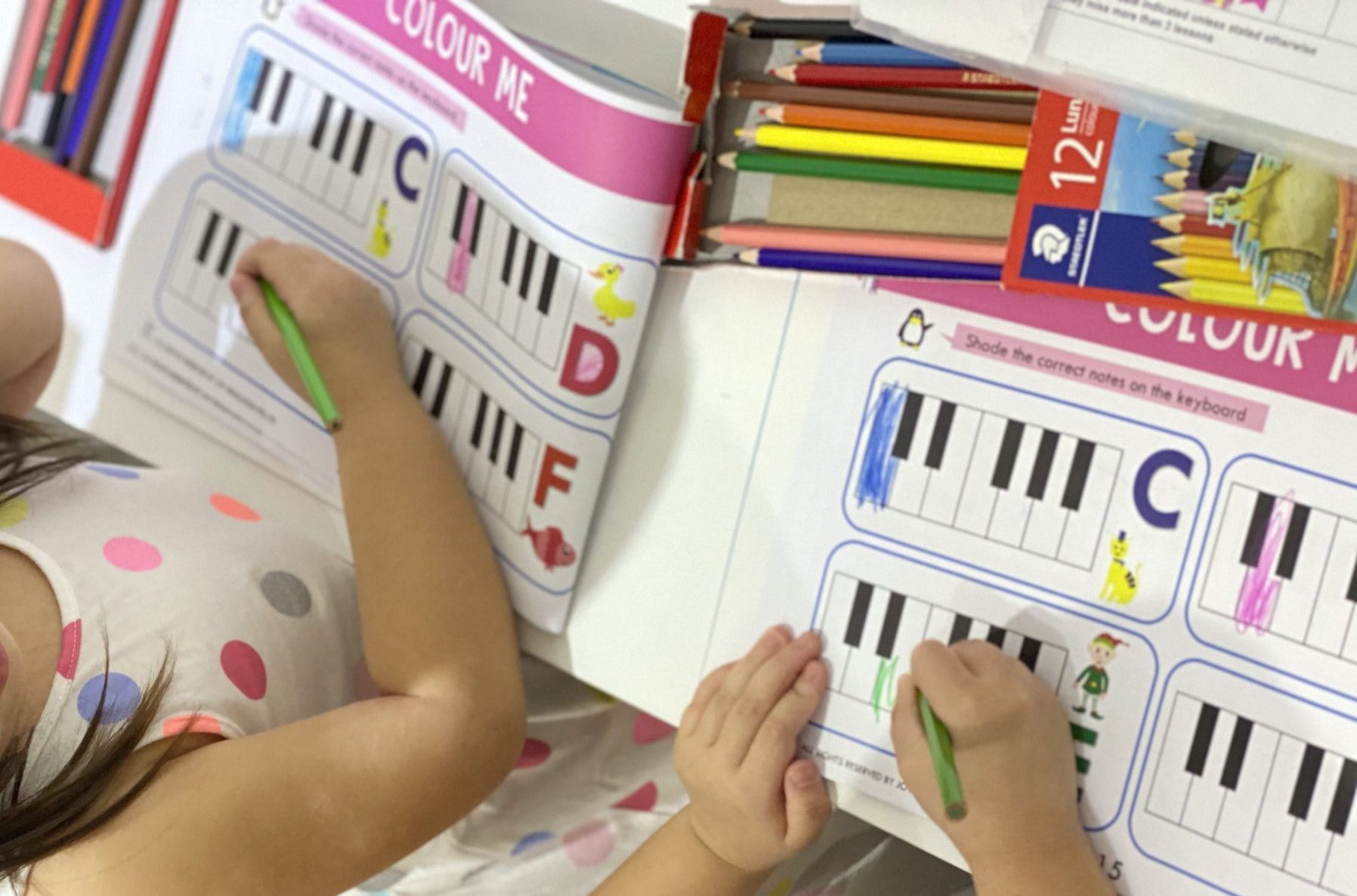
Why should piano lessons include written theory?
Music theory and practical skills go hand-in-hand to provide an all-rounded understanding of the piano. Don’t get us wrong, it is definitely possible to play the piano without learning piano theory! However, this results in an incomplete music education where students are fluent in performing but face difficulties in theoretical aspects. After all, there are no disadvantages to learning piano theory— only advantages.
A solid grasp of music theory is crucial because it’s like understanding the grammar and vocabulary of the language of music. The “grammar” and “vocabulary” cover time signatures, key signatures, notation, music terms, clefs, chords, and more. Having a good foundation in music theory helps improve our sight-reading skills, increases the speed of mastering piano pieces, and aids in enhancing critical listening skills.
At JoyWaltzAcademy, we make music theory a manageable and enjoyable experience for children as young as 3 years old, through colourful and engaging books and a curated curriculum.
1. Improve sight-reading
Have you ever been amazed by someone playing a piano piece perfectly on the first try? A solid foundation in piano theory made that possible.
When we look at a musical score for the first time, it may resemble a scattered 1000-piece puzzle, where the metaphorical puzzle pieces represent notes, symbols, and words. However, when equipped with music theory knowledge, this complex puzzle transforms into a coherent picture. The score starts to make sense as you will notice chord and scale patterns, intervals between notes, time and key signatures, as well as rhythm and dynamics.
At our academy, we take a step-based approach to teaching piano theory. Concepts are organised into smaller digestible segments and reinforced through a range of fun drills and exercises.
2. Decipher songs faster
Learning piano theory does not imply that playing difficult pieces like “Bohemian Rhapsody” will be as easy as playing “Mary Had a Little Lamb.” However, it will make it easier for you to comprehend and master them.
As mentioned earlier, a strong grasp of piano theory enables you to recognise the grammar, vocabulary, and syntax within a piece. This comprehension enhances your ability to interpret the music effectively and supports memorisation.
By identifying components such as structure, melody, form, theme, motifs, ornaments, and drawing connections between the various elements, this aids students in understanding the main message of the piece. And doing so provides insight into how best to convey the intended emotion and character envisioned by the composer.
3. Enhance critical listening skills
Students well-versed in piano theory will also be able to practise conscious listening. Songs don’t just float by but are subconsciously or consciously being processed to look for the following clues:
· What key is the piece in?
· Why are there so many accidentals in this music?
· What is the form of this piece – ABA, rondo etc?
· What dynamic contouring is utilised and what emotions are evoked?
· What music era does the piece belong to?
Conclusion
As piano theory is used in the aspects of scales, pieces and aural, establishing a strong foundation of it puts a student in good stead for examinations as well. Without a doubt, piano theory is essential in deciphering the many inner workings of the world of piano and should be incorporated into your child’s piano lessons.